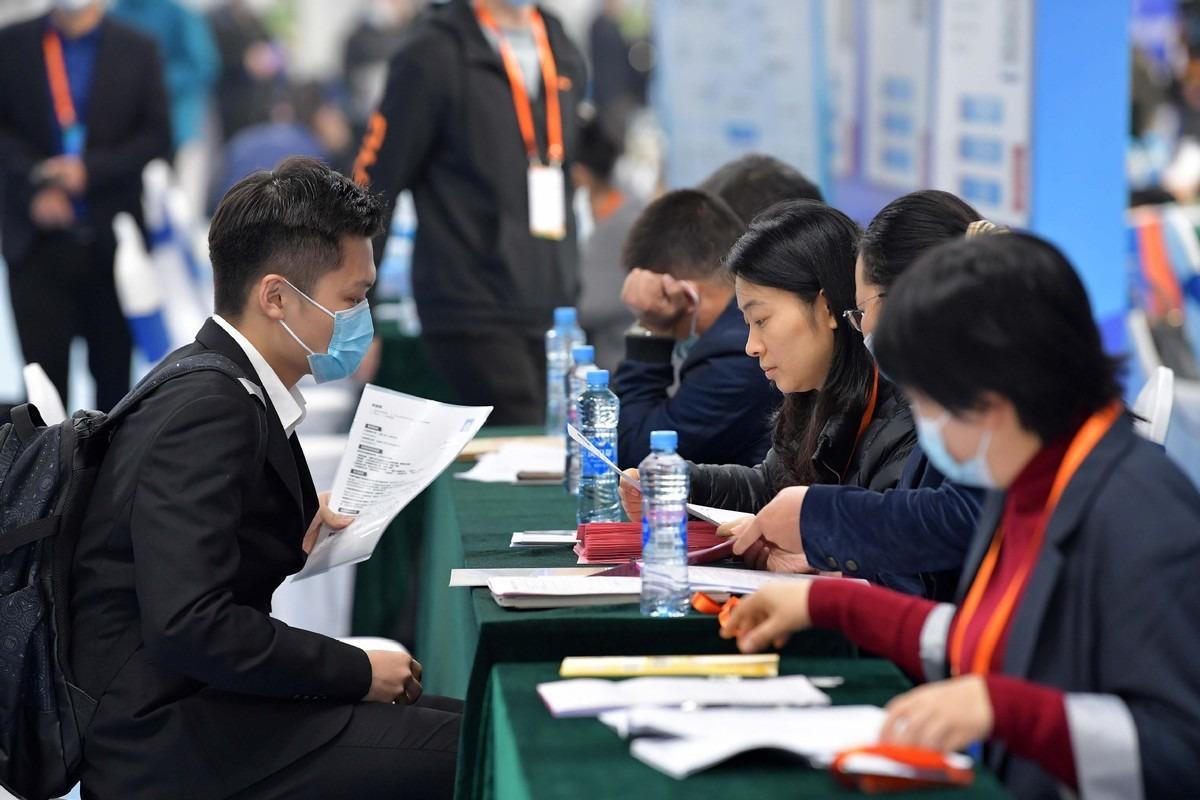 A graduate talks with job recruiters at a career fair at Nanchang University in Nanchang, Jiangxi province. (PHOTO / XINHUA)
A graduate talks with job recruiters at a career fair at Nanchang University in Nanchang, Jiangxi province. (PHOTO / XINHUA)
Some provincial capitals and large cities in China have begun to relax their hukou policies, a move that experts said was to encourage a more flexible movement of people, particularly those seeking employment.
The hukou is the system of household registration on the Chinese mainland, identifying an individual as a permanent resident of a particular area and granting that individual social benefits such as access to education, healthcare and the purchase of property.
A recent trending topic on microblogging platform Sina Weibo revolved around the possibility of switching a household registration from a place outside of cities such as Nanchang, Haikou and Hangzhou, to one of those cities provided you had a friend living in that city and if other conditions are met.
The trend of loosening hukou policy is widely seen as an approach to bolster labor mobility while stimulating urbanization efforts.
The requirements vary in different cities and regions. In some cities such as Nanchang, if a friend owns a local residence and agrees to sponsor a registration, that individual can settle in Nanchang.
But in larger cities like Hangzhou, it's more difficult to transfer hukou. An individual must be unmarried and have no property in Hangzhou, as well as meet specific criteria set by the city to be eligible for household registration.
In cities like Haikou and Hefei, friends can buy a property together and have their household registrations in the same booklet. However, only one of them can be registered as the head of the household.
Wen Jun, a professor of social sciences at East China Normal University in Shanghai, said that the move could help young people better integrate into urban life where they choose to move to.
"For young job seekers, this is good news," Wen said, adding that the relaxation of household registration policies in cities provides them with more employment opportunities and room for development.
From a broader view, Wen saw the relaxation as the latest manifestation of China's ongoing household registration reform.
"It's a continuous trend that urban household registration restrictions have been gradually loosening. And it is no doubt a positive sign and an essential way to enhance China's urban management capacity," he said.
The Chinese government has been gradually bridging the gap between agricultural and urban hukou over the past decade.
Hukou reforms such as these ultimately aim to reduce the inequities between different types of hukou holders and improve labor mobility in the economy, Wen said.
In August, the Ministry of Public Security piloted the implementation of more flexible hukou policies to boost urbanization. First- and second-tier cities such as Shenzhen in Guangdong province and Nanjing in Jiangsu province have also loosened household registration policies this year.
However, there is a significant difference in household registration conditions among cities, with megacities such as Beijing and Guangzhou continuing to have more restrictive policies.
Hukou is closely linked to access to many social welfare benefits in a specific city, including education, healthcare and retirement pensions, Wen explained.
"So the relaxation of household registration policies needs to consider the corresponding management capabilities and social security systems."
He cautioned that the easing of household registration policies should follow a step-by-step approach and each city or region should open under certain conditions based on its own situation.
"If the management capacity and the social security and welfare system cannot keep up after the relaxation, it is easy to create inequalities within a city, which will complicate the original guarantee system and social public services. And that would be troublesome."


